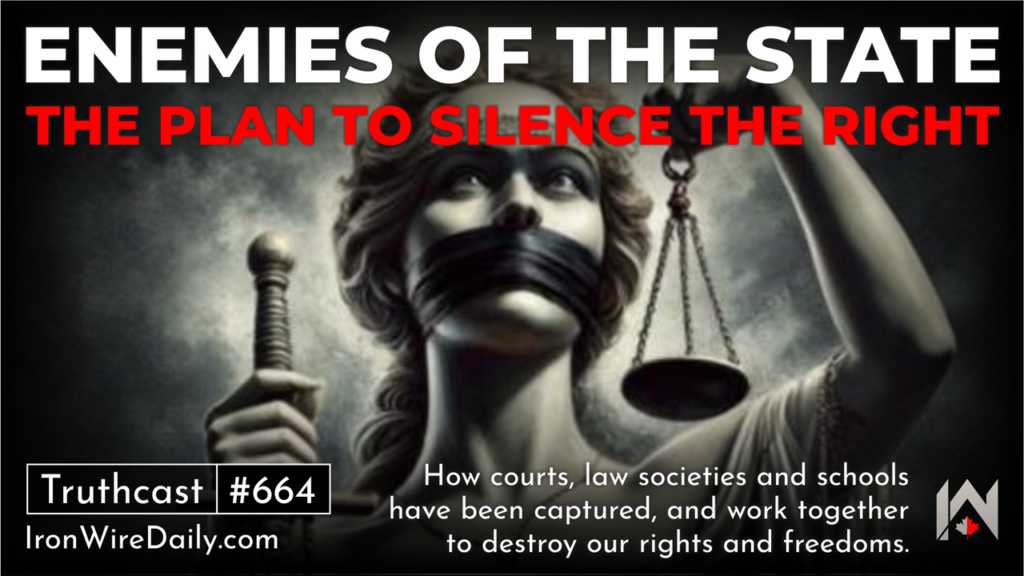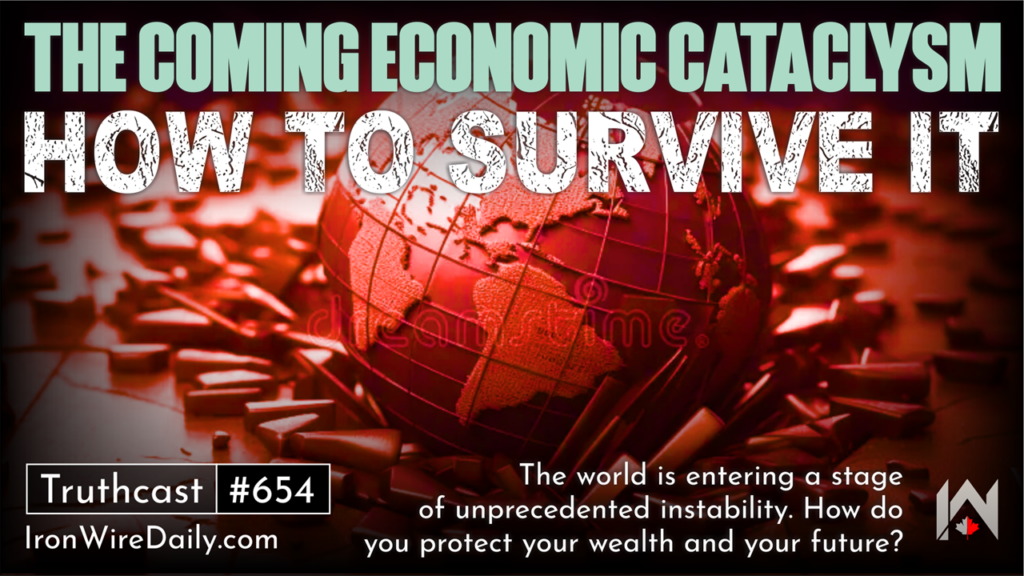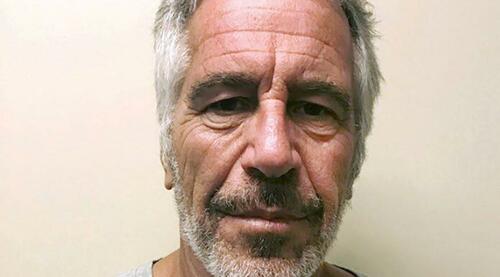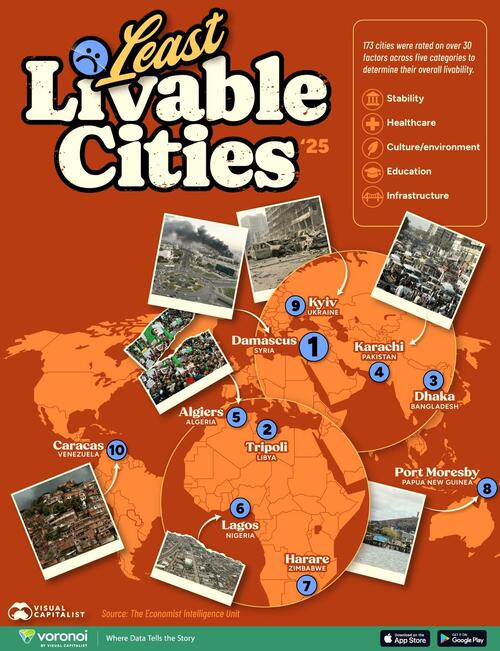Canada’s COVID: Prelude to Total War | Barry Cooper
We are now in year three of the COVID narrative in Canada. While restrictions have largely been dropped, if you are paying attention to what is happening behind the scenes you know that the globalist agenda is far from over.…
Will Dove 0:00 We are now in year three of the COVID narrative in Canada, while restrictions have largely been dropped, if you are paying attention to what is happening behind the scenes, you know that the globalist agenda is far from over. Recently, I had the pleasure to read Canada's COVID The Story of a Pandemic Moral Panic by Professors Barry Cooper and Marco Navarro-Genie. Both gentlemen are professors of political science here in Canada. Many books have been written on the pandemic, but very few from our own Canadian perspective. The book is exhaustively researched, with almost 200 pages of footnotes alone. But the significance of the book for me was not the large amount of verifiable data and facts. But the observations and conclusions drawn by the authors, which provide significant insight into what is happening in the minds of the tyrants, both here in Canada, and globally. I'm joined today by one of the authors, Professor Barry Cooper. Professor Cooper, welcome to The Show. Barry Cooper 1:12 Good to be here. Will Dove 1:13 I have to say I loved your book, I thought it was one of the best research books that I have read yet, and I've read a lot of them. As I explained in the introduction, folks, some, I think about 200 pages of footnotes alone, to backup all of the data. Now there's a great deal of data in this book, Professor. But what I really want to get out today was your conclusions. You talked a fair bit about the philosophy of what's happening. And I think it's very important to understand it, and where it's going to go. And where I'd like to start with is this concept of nudgers. Would you please explain that for our viewers? Barry Cooper 1:48 Yeah, 'nudging' is a term that was introduced by a couple of economists. They were basically market driven economists. And it was a term that they suggested be used by governments to shape public opinion, in favor of whatever particular policies that government supported. The guys who wrote it, as I said, were in favor of markets. But that doesn't mean that everybody who uses their technique would be and it's basically a, it's basically what President Trump used to call fake news. It you can shape things through omission, through ommission sometimes, it's another way of saying things that aren't entirely full blown lies, but are a far cry from the complete truth, as well. That's what these guys advocated. And it was it was taken over with enthusiasm by politicians in just about every Western democracy. And in Canada by the Government of Canada, as well as by the provinces. I know Alberta had a version of this, I can't remember what they called it, but it was basically an advisory group of some sort. There, they tended to be not economists who actually did it, but sort of social psychologists and people who, in their own minds anyway, had a pretty clear idea on how to influence what they now call mass public opinion. Will Dove 3:31 Yes. And that's where I wanted to go with this is because, obviously, it's much much easier to control a large population, if you have that populations' cooperation, if they're willing to just go along and give up their rights and do whatever you tell them to do. And so my viewers are very well familiar, of course, with the fake news that has been thrown at us through the entire COVID narrative, you know, getting people to mask up and social distance and line up for shots and lose their jobs and put up with having their businesses shut down. But my question for you is, what was the purpose of the nudging? What are they trying to nudge people to? Barry Cooper 4:09 It's compliance with the official narrative, we call it the plague story. It's not our original term, we borrowed it from an Irish novelist and poet. But to have everybody believes the plague story, and if you believed it, then you would comply with the directives, mostly by alleged experts, who had their own agenda and had their own purposes and gave basically, gave orders particularly in Alberta and BC and gave orders to the premiers and the senior ministers. And they just did what they were told. If that worked with the population, it didn't work. 100% - certainly in Alberta, but it worked significantly enough. then you will have a population that will do what they're told. There's nothing that a bureaucrat loves more than telling people what to do. So you have to get as much compliance as you can. And this was one of the methods that they used to do it. Will Dove 5:16 Now, that leads me to the other concept that you talked about in your book that I found extremely significant, Power Knowledge. Please explain that. Barry Cooper 5:25 Yes. That was a term that was invented by Michel Foucault who's a French philosopher who's generally seen as being very radically left. I wrote a book on him years ago. And he, I mean, his practical views were nothing that compatible with a lot of the stuff that I think is important, but he did, he was a very smart guy - he died, I'm guessing about 25 years ago. But he came up with a number of new terms, which he took from his study of nature and power, knowledge was one of them. And the significance of it is that academics are not simply people who know stuff. They can know whatever they want, but if their knowledge is sort of being kept in the closet, with the lights off, it doesn't matter. Knowledge can be mobilized, but it needs authority or power, chiefly, bureaucratic power, in order to become effective. So it's that part of it is just Machiavellian. Machiavelli talked about effective truth. The implication being the truth, it was not effective, was fantasy. Effective truth or power, knowledge, knowledge that is informed by authoritative sources of power is effective, anything else isn't, and it simply doesn't matter. Will Dove 7:06 So now, though, that brings me back to the nudging, because what we have right now, and I have my own theory, that what's happening right now was, in a sense, inevitable, in one form or another. And the reason is, that human knowledge, the scope of it has expanded so much in the last 100 years, especially with the advent of the computer age, that the vast majority of people today, they don't understand pretty much anything that's going on around them, they don't understand how their car runs, how their cell phone works. And they certainly don't understand things like viruses. And so what I think is being done, and I want your opinion on this is that this power, knowledge is being used and referenced earlier to, especially in BC and Alberta, and the public health officers dictating to those provinces and what was going on because, well, we have this power knowledge, we understand this, and you don't, and so we're going to tell you what to do. And as long as you do what we say, you'll be safe. So that comes back into that idea of nudging people into total compliance. Because as long as you can keep them believing that they're ignorant, that they can't possibly understand it and that the only way they're going to be safe is if they listen to these people who possess this power knowledge. Well, then you've opened the doors to pretty much anything. Barry Cooper 8:22 Pretty much yeah. And the premise is that safety is the most important thing for all human beings in the world. That's simply not true. There are lots of people who take risks. And I don't just mean economic risks, I mean, take genuine risks. This is what in political science we call a philosophical anthropology, philosophical understanding of human being. People who think that safety is the highest thing in their lives are cowards. And historically, cowardice has never been seen as a virtue. So there's a demeaning aspect of the this, the effects of nudging and the effects of bureaucratic control. That the people who impose it are imposing their own understanding of human existence on the rest of us. That's what you can see in the sort of speak in the eyes of provincial chief medical officers of health, but also when the nudge groups allow their pictures to be taken. In the end, you can see this we put in a link in the book to the actual personnel in Ottawa who were doing this. They're in the PCO and the Privy Council Office. If you just look at the kind of people that are whose photographs are there, you can get a pretty good idea of, of what kind of individuals they are. They all have the same kind, I would say, not exactly arrogant, but a sense of superiority. That is I can see it in students sometimes, too, that is not based on knowledge. It's based simply on their position in a position of power. And that's it. That's, that's it, they have power. You don't shut up and do what you're told. Will Dove 10:26 And there's a reason why they're in that position without giving any names away. I happen to know a close relative of Deena Hinshaw, and he grew up with her. And he said, It was very strange, because even as a child, what she wanted was to be in health administration. I think, what kid wants to go into health administration. But now you look at Deena Hinshaw today, and look at Bonnie Henry. And both of them have the classic signs of a psychopath. You know, you can look at the checklist things like they don't move their heads, when they talk, they tend to stare straight ahead fixedly, they express almost no motion. And so what you've got, and I'm trying to bring ideas together here is that people who end up in these positions of power and knowledge typically wanted to be there. And that's a major problem, because we've got these people who wanted power. Well, they sure as heck don't want it for the benefit of others. And so they want total compliance. And this is coming to a very important question. What do they want to do with it? If they can get control of the human population? What do they want to do with it? Barry Cooper 11:32 That's a very good question. So far as I could tell, and the only documentation on this is Bonnie Henry's book, which I did review, but I think it's in chapter two. It's clearly all she wanted was to have people do what she's - what they're told. Whatever it happened to be, I don't think she had a grand vision of how she was going to use the power that she had acquired. There's determined St. Augustine, Lovato dominante, the desire to dominate period, and it doesn't mean that it has to have any further purpose. Just to know that you are number one, and everybody does what they're told. And if you read Bonnie Henry's book, and Henry, when Deena Hinshaw was fired, about a week later, Bonnie Henry hired her is to give her some advice out in BC. You don't actually have to have a purpose beyond being in control. I have no idea if Bonnie Henry has some kind of grand vision. If she does, she's probably bortowed from you know, somebody else who has something simple minded, that she can understand because her formation or educational formation, as within anthos. And, for that matter, Teresa Tam, the Federal equivalent is well they call it an education rather than training would be a mistake. It's not they were simply trained, and they were able to do things when they were younger, get people to do what they're told. And we see the result, they just wanted to push people around with Dina Henshaw that she was able then to get the RCMP to escort her officers into a number of establishments. A lot of them in rural Alberta, where they just they were shut down. They didn't do what they were told. So she sent the cops after them the cops padlocked one place in Mirror, Alberta, which is literally just a widening of the road. Will Dove 14:06 Chris' Whistle Stop Cafe I know the Whistle Stop Cafe Yeah. Barry Cooper 14:11 And about four or five days later, the guy opened it again in the parking lot, which really irritated her. So there's a kind of deformation of personalities that you often find when you have people who want simply to dominate, and get the kind of training that puts them in a position where other people will actually believe what they say, as being true. And I think that's the case both with these two. And I know that they're both women. I don't know if that's an accident or maybe it is or not, but these these two people in BC and Alberta have certainly shown a very similar profile. Will Dove 14:54 Right. And so I wanted to bump it up. Let's go up to the top now. A lot of people are hear whether this there is a top. But let's go to the top and talk about Klaus Schwab, author of The Great Reset the Fourth Industrial Revolution. And you quote in his book something that I found extremely significant when I read it. And he said, When will things return to normal? Well, the answer is never. Barry Cooper 15:18 Yeah. That attitude is, it has something that neither of these two doctors in BC and Alberta had. And that is a very perverse revolutionary vision, a vision of what he wants to do to the entirety of the human population. People who say things will never return to normal, genuinely are revolutionaries. And what they want the revolution to contain is, is basically a change in reality. People who've looked at I haven't read all Schwab's work, but I've read enough of it to know that the guy is living in a fantasy world, quite frankly. But that doesn't mean that people who live in that kind of world cannot try and make it actual. I teach a course on ideologies. We talk about legacy ideologies that are more or less common sensical, like liberalism and conservatism. We also talk about Bolshevism and Nazism and environmentalism, and feminism. And here, there's a much more radical impetus as to what the founders want to achieve. And it really is a change in the structure of reality. Human beings can't do that. They simply are unable to do that. But they can show yourself cause a great deal of damage along the way as they try and put their fantasies into into reality. Will Dove 16:48 All right, so Professor Cooper, we've talked about what has happened, I want to get into what you and I both believe is going to happen because I agree with the conclusion you came into in the book, that everything we've been through the last three years this what you referred to as a biosecurity state is setting us all up for what you also another term, you coined environ-security state, because they've been pushing this global warming climate alarmism agenda forever. Any qualified scientist and I recently interviewed one of these, Tom Harris, will show you the data that shows that it's not happening is under bunk. But they've been screaming this stuff for years, they're gonna keep doing it. And it's your opinion. And I said, I agree with you that a lot of what they've been doing with this social experiment trying to reengineer people's behavior, is so that they can apply those lessons to this, and biosecurity state because global warming is the ultimate Boogeyman. You can't actually see it happening. Plus, they'll tell you, Well, if we don't do something, now, by the time you do see something happening, it's going to be too late. And they can run that game forever. So where do you see that going? Barry Cooper 18:00 Yeah, that's it, that's exactly right. That's the big difference between the the COVID Moral pandemic and the global warming one. It is a completely utterly, totally 100% non scientific, because it can't be falsified. And if there's anything that real scientists agree on, their hypotheses have to be falsifiable, or else, it's just basically BS. The environmentalists say exactly what you summarized. It'll be too late. So we have to do it now. They have absolutely no way of saying that. And that also means that that they can never be wrong. They keep postponing. I mean, that was two days ago, there was a thing in the New York Times that the IPCC said that we've got to wait 15 years or something. Otherwise, you know, we'll all be dead. I mean, this is just absurd. It's, it's an attempt to induce fear. And when you're afraid, you do what you're told. That's it. It has no other purpose. And I, it takes a while for my first year students to sort of get that about just how perverse environmentalist ideology because they're thinking that, you know, Al Gore was actually telling the truth. And it takes them a while after you put some evidence in front of them to come to terms with the fact that he had been lied to for the entirety of their high school education. So they believe this stuff, and it's very difficult. Sometimes it's not exactly traumatic, because most of them are fairly resilient and curious about reality. But some of them get really pissed off that they had been lied to. So I say it's not your necessarily your high school teachers fault. They don't know any better either. They've never looked at this stuff. But it does have a political purpose, and it has a genuine political agenda. And so you have to look behind all of the alarmism to see what the evidence is. And it's non existent. Will Dove 20:05 Of course it is. Yes, absolutely. Now, you've just said something really important. And I'm going to step outside the scope of your book, because what you've said, You just talked about experiences in your classrooms where you're taking these first year students, and you said, sometimes it's difficult to get them to understand they have been lied to. And this is a struggle that we're all having right now, those of us who are out there telling the truth about the whole COVID narrative, and trying to get people to understand they have been lied to. But so many people have accepted that power knowledge structure, because well, I don't understand it. And they don't even want to look at it, they don't want to hear it. Now, you've got the advantage that you've got students who have come into your classroom to study political science, and hopefully they're receptive to being told that just maybe the news wasn't telling you the truth. But do you have any insights on how we might get through to the general population? Barry Cooper 20:55 Absolutely not. The only thing that I can do is, you know, write books and, and talk about it and hope that, you know, people will read it. I mean, I read stuff in the popular media as well. And probably one article that, that I would write say for Western Standard would have have more readers than all of the academic stuff that I've ever written. So, you know, that's, that's part of it. It's, it's, it's kind of a responsibility. It's not, you know, I don't want to be moralistic about it because I enjoy it as well? You know, I gotta be clear about that. And often, I know that what I will be writing will be shocking to some of the people that read it. But I write it on the basis of evidence, I don't make stuff up, unlike a lot of the people that write on things on the other side, like either with COVID, or with anthropogenic climate change. So there's an element of I wouldn't exactly say mysteriousness, but, but enjoyment in telling people things that they have never thought of or heard of before. And it's certainly true with teaching. And the whole purpose. As I explained to the, to these students at the beginning of the class, it goes back to an old Greek distinction between Nomos and phusis; between nature and convention. And I said, we always need conventions, but they have to be interrogated, we have to question them. And we do so on the basis that is not a convention, what the what the Greeks called the nature, which we would just say, just say evidence, we have to look at evidence. And a lot of them never have, they just accepted the various conventions that have informed the half baked opinions of their high school teachers. Will Dove 22:59 Right. All right. So I'm sorry for that one diversion there. I want to get back to the book. And we were talking about in enviro-security. And you made a statement in the book that I'm still puzzling over. So you're going to be explaining this to me at the same time, you're explaining it to our viewers, because you said that that environment security state requires surveillance of the people. Not not desires, not, you know, it would be good to have - Requires, why? Barry Cooper 23:31 Because the environmental security state, the way that we talked about it, is what we would, we used to call a totalitarian state. It's not just the guys thinking they're important. It's wanting to control everybody, with respect to everything. And so you get this this mega issue, that the world will come to an end unless we do something like right now. And it'll be too late, when everybody sees what we have to do. And it's based on science. And the science is, is tends to what in philosophy we call totalize itself becomes massive for for everybody in the world. That means you have to know what people are thinking. Eventually, you have to certainly know what they're doing. And in order to know that you have to monitor them. I mean, this was the great the great advantage of cell phones for example, you can be monitored very easily. And governments, particularly nudgers are very keen on that. There was a book by a woman named Zubov who was at the the Harvard Business School. It was called "Surveillance Capitalism". And it's really an excellent study I cited a couple of times toward the end of the book, but um It was very good in the sense that the logic of this kind of technology is that it has to be applied universally. That's why "everybody" or darn near everybody numerically, has a smartphone. Everything is designed for you to deal with your screens or to deal with reality through your screens. And here, if I can say one other thing that I did in that first year course, one of the options for the students is to go without social media for a week, and write about it. And I say, you know, keep a journal of your experiences. And then, and then write it up as a as an essay. And then if you want go and look at some of the social science that has been done on the effects of social media, and I mean, some of them do look at the secondary literature, some of them don't, but they're all shocked at how much they have grown to be dependent, particularly on small screens. I've seen some very poignant. Over the years, I've done this for three or four years, it's been very poignant statements from students that, you know, I never knew that they were there were rabbits on campus. There are 1000s of, you know, I never knew that there were birds. One kid from the from the blood reserve, said, he realized that this was addictive. He said, I've I've have a lot of experience with addiction in my family. And I'm, I'm not going to use this anymore. So you know, there's a, there's a kind of pathology to this kind of total surveillance as well. And it's built into the, it's built into the equipment. Will Dove 26:57 And I'm glad that you brought up that social media narrative, because something else that you talked about in your book that I thought was extremely significant was okay, we've already talked about the the power knowledge, people at the top call them psychopaths, sociopaths, tyrants, whatever you want to call them doesn't matter. But it filters down, it filters down into the minor functionaries, it filters down into the deep state, and it filters down into the very population, that people are signing on and going along with this. And many of them aren't even necessarily all that afraid. But they're going along with it anyway, they're being part of this structure, to nudge the entire society in one direction. Please explain that? Barry Cooper 27:46 Well, the only I do political philosophy that I explain it by referring you to Plato, the most people are, are not brave. Most people are not very reflective. They have their desires, and their desires one of them certainly is not to rock the boat, it'd be safe, to get along with people not to think too much. And anything that challenges them. I mean, seriously challenges them becomes an existential threat. And they see it that way. They're not likely to do anything about it. And quite frankly, that's when I when you asked me previous question, what can be done about this? I said not much. That's what I was thinking of. The inertia that is kind of built in to the personalities of a lot of people in the world, and a lot of them are my friends. They, you know I give them a copy of the book, and they said they read it and of course, you know, I'm just being polite, because they gave me their their books. But they will if they read read it, they wouldn't you know, they'd say that if this was I hate using the word conspiracy theory, but that that I become a conspiracy nut. I don't think that's what it is. I think the evidence is pretty overwhelming. The only conspiracies associated with COVID were by the people that were doing the gain of function research, channeling money like Fauci to do Wuhan. They did engage in genuine conspiracies, and we have the evidence of it now. And this was known fairly early, certainly by the summer of 2020. That there was an enormous amount of unexplained kind of money laundering going on through the US government to China. And no one could come up with an explanation. The principles involved denied it and so then, since no one said it anything, if you mentioned things like that, you're considered a conspiracy not? Well, you know, sometimes there are conspiracies. This is why I love teaching Machiavelli. You know, he, he says conspiracies are very difficult to pull off, but they exist. And we've seen that. Certainly not, not at the time, not in the late spring and summer of 2020. But, but in the last six or eight months, the details of some very well thought out conspiracies, by scientists and by bureaucrats have been reported in mainstream media sources. We reported them in the book. But our sources were certainly not major, it wasn't the New York Times, it was a lot of very small sort of alternative media that actually talked to some of the principals in bulk. Some of the they were there were scientists who put things up on their blogs that name names and said, this is, what they're doing is wrong, it's dangerous, and so on. There it was available. In other words, you just had to look for it. And you wouldn't find it by simply by googling. Will Dove 31:19 So Professor Cooper, I've brought us to this point, because once again, I want to step outside of the book, because you are a professor of political science. And this is a question I've asked many guests, but you were the first political scientist, I've been able to ask this question of, because we've established some very important points. Number one, it's a giant social experiment trying to reengineer human behavior. It's being run by people for whom the purpose is control. It's not anything that, it's controlled, and they don't care how they get it. And as you said, the majority of people are not courageous, they're not reflective, they're just going to go along with whatever these power knowledge people tell them to do. Which means that if we're going to change, we're going to fix it, it's up to those of us who are courageous, who are effective. In short, it's up to a brave minority, to change the system. And so here's where I'm going with this. I have asked this question a number of people have of how do we fix this? And the answer that I often get is, well, we have to get more conservatives running for office. But as a political science professor, I think we can take it beyond that. Because I've been preaching for a while now my own personal belief that the way we protect ourselves from this happening, and for having had it happen, again, is decentralization. We've had this massive centralization of power around the world now, it's global. But that's just my opinion. What I'd like to know from you is, do you think there's a way we can restructure our whole political system nationally, internationally, to prevent this kind of thing from happening again? Barry Cooper 32:58 I doubt it, quite frankly. I think I mean, it's always possible. But I doubt it. I can tell you and I, I've been asked similar kinds of questions in the past. And it's not as not a cop out to say that, that political science is not in the business of doing politics. We're in the business of understanding other people when they do politics. And you can't do both. I don't think I mean, that part of the Plato's Philosopher King, was a joke. It was intended to be a joke. I mean, I explained that when I teach the Republic, but the point is that there are two separate kinds of vocations you might say, and I have absolutely no idea what what can be done as, as Lenin used to say, and there's a reason for that, which is the political science reason, and that is that human beings have this capacity to act, to take an initiative, as you're suggesting, by things like decentralization. That, in a way I'm my support for the independence of Alberta is part of that. Although I that's not my main reason. It's because I think Canada has screwed around with Alberta long enough. I think five generations is quite enough of being beaten up by Laurentian Canada. But the point is that there is the possibility of acting in the sort of technical sense of doing something that has no prior cause that you have free will that you are genuinely free and you can actually do something new. And that can't be anticipated. So there's a kind of prudential element to what may seem to be just being evasive, not wanting to take a position, but it's not it's I have no idea it I think that my job is to say, this is what these people have done. They are, they have aspirations that I consider to be replete with injustice, I think they should all be in jail. But I'm not going to put them there. You know, how can I do that? I'm not a cop. I'm not a lawyer. I'm not, you know, I'm just a political scientist. So all of the things that seem to me as desirable possibilities, translating that through action is not really my job. It's hard enough to try and understand what other people are doing, then to try and do it yourself. So I'm not being evasive. It's just, it's not what I do. Will Dove 35:50 Unless you think I'm disappointed with your answer, I'm not because you gave me exactly the answer I was expecting. And thank you for bringing up that point of Plato, and the Philosopher King and the fact that this is a joke, because I think what we've explored in this discussion, at least in part, is the fact that those people who want power, and those people who tend to reflect upon what's wrong with our society and how we fix it, they are not the same people. And so those people who are like you a political scientist, you're not going to run for office, because you don't want power. And the people who want power, don't want to understand what's wrong with the system, because they don't care. That's all it's about them. And if you ever get a rare instance of a potential philosopher, king, they will take them out. I don't know if you know, Rob Anders. Barry Cooper 36:36 Yeah, I know. Will Dove 36:36 What did they do to him? I would say, if you were one of your students, okay, I'm not surprised, because I know, Rob, and he's one of the very well educated man. He understands a lot about history and philosophy and politics. And he was one of the founding members of the Reform Party. He was a potential philosopher king. And so what happened, he was dangerous to the power structure. And so they took him out with trumped up charges of tax evasion charges, which by the way, folks, if you don't know who rob Anders is, he's now been cleared of, but it took years and it destroyed his political career. And so the conclusion has to be that the only way to protect ourselves from this is that those of us who are that brave minority, we stand up. And we fight until such time as the tyrants' plans collapse. Barry Cooper 37:27 Yeah, and one of the things that will make them collapse is not just their internal instability, but resistance, whether its resistance, direct political resistance, or whether it's the kind of resistance that is embodied in that book that Marco and I did, which is to show why these mistakes were made. Who actually did it, I mean, that's why we got 150 odd pages of footnotes. It's, it's not just to cover our butts, but it's also to provide evidence for some future historians. They may not have, you know, the sources that we looked at may not be there when they get around to writing a, an account of, of the COVID event, say 15 or 20 years from now, when things will be a little a little more clear, presumably. Well, we've given them a bibliography they can start with and that was one of the purposes of, of writing the book was so many footnotes. I mean, some of them are in the text, some of them are at the back and so on. Will Dove 38:31 Yes, Professor Cooper, thank you so much for your time, folks. Once again, the title of that book is "Canada's COVID: The Story of a Pandemic Moral Panic". I've read it. I've taken notes on it. I think it's one of the best books I've read yet, especially as it pertains very specifically to what was happening here in Canada. Professor, thank you again. Barry Cooper 38:50 Thank you. Will,













